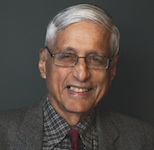CAA doesn’t carry out Mahatma Gandhi’s wishes, it brazenly defies them
Undoubtedly Gandhi wanted Pakistan to protect its minorities and India to aid the persecuted. But he wanted India too to protect its minorities.
No one expects the Prime Minister to take up P Chidambaram’s commonsense suggestion of a televised debate on the Citizenship Amendment Act (CAA) between him and his critics. Though the PM is unlikely to accede to it, I too have a request for him. Please stop saying that through the CAA the government is “only fulfilling the dreams and wishes of Mahatma Gandhi”.
It is doing nothing of the kind. I say this not as Gandhi’s grandson but as his biographer. Studiously excluding Muslims from its benefits, the CAA does not carry out the Mahatma’s wishes; it brazenly defies them.
Undoubtedly Gandhi wanted Pakistan to protect its minorities and India to aid the persecuted. But he wanted India too to protect its minorities. Not only that. After the carnage accompanying Partition, Gandhi had the temerity to dream that one day Hindu and Sikh refugees would return from India to their homes in Pakistan, and Muslim refugees likewise from Pakistan to the places they had left behind in India.
In January 1948 — the month when he was assassinated — Gandhi was evidently thrilled when an unnamed Muslim leader from Pakistan spoke to him of wanting to “witness a fifty-mile-long procession of Hindus and Sikhs returning to Pakistan with Gandhiji at its head”. We learn this from an eyewitness to the conversation: Pyarelal, the Mahatma’s personal secretary for 29 years (1919-48), who recorded it in his massive Gandhi biography, Last Phase. A pledge by leading Delhi residents that induced Gandhi to end his last fast (also in January 1948) included this sentence: “We shall not object to the return to Delhi of the Muslims who have migrated from here if they choose to come back and Muslims shall be able to carry on their business as before.”
Gandhi may not have been realistic in his dream of the 1947 refugees returning to their homes. But to imply that Gandhi wanted the Hindu minorities of Pakistan, Bangladesh and Afghanistan to migrate to India, or that a CAA enabling such a migration fulfils Gandhi’s wishes, is to turn history on its head.
This distortion may suit those who imagine that in 1947 India was created solely for Hindus and Pakistan only for Muslims. Muslim-majority areas indeed became Pakistan on August 14, 1947, and Hindu-majority areas remained India. Even so, free India’s leaders, people and Constitution saw India as a nation for all, where an atheist, a Buddhist, a Christian, a Jew, a Muslim or a Sikh would enjoy rights equal to a Hindu’s. Anyone claiming that Gandhi wanted support confined to non-Muslims, or that he wished to exclude Muslims from relief, has to be an inventor of historical facts.
Even in our post-truth age, a blatant inversion of history is unlikely to work. Selective history stands a better chance. Public memory is short, and Whatsapp has replaced reading. It becomes easy, while recalling the 1947 carnage, to tell Pakistanis that Muslims were its chief victims, and Indians that Hindus and Sikhs were the primary sufferers.
In fact, as all serious students of history know, there was a sobering parity to the 1947 massacres and migrations. Almost equal numbers of non-Muslims and Muslims were involved. Few Pakistanis or Bangladeshis know today that until 1947 Karachi, Lahore, Rawalpindi, Multan and Dhaka contained large Hindu and Sikh populations. Few Indians are aware that until 1947 Muslims constituted close to half — or even more than half — the population in Amritsar, Jalandhar and Ludhiana.
Many Indians of our time know of the atrocities in the 1946 autumn on Hindus in Noakhali, now part of Bangladesh. Few know that within weeks of the Noakhali horror, Bihar saw violence on Muslims on an even larger scale. Gandhi’s village-to-village trek to instill courage among Noakhali’s Hindus and contrition among its Muslims is remembered by many in India. Few, however, recall the words with which Gandhi confronted Bihar’s political leaders in March 1947: “Is it or isn’t it a fact that quite a large number of Congressmen took part in the disturbances? How many of the 132 members of your Committee were involved? …I wish to ask you, how could you live to see an old woman of 110 years being butchered before your eyes? …I will not rest nor let others rest. I (will) wander all over on foot and ask the skeletons (what) happened. There is such a fire raging in me that I (will) know no peace till I have found a solution for all this… If I find that my comrades are deceiving me, I will be furious, and I shall walk barefoot on and on through hail or storm”.
This, dear Narendrabhai, was Gandhi’s understanding of a government’s duty towards minorities.
You say, and others say on your behalf, that the CAA has nothing to do with Muslims inside India, and also that the CAA will not be followed by something that terrifies Indians of all religions, a National Register of Citizens. Why then did Dilip Ghosh, your party’s West Bengal chief, speak the way he did on January 12? “Didi’s (Mamata Banerjee) police didn’t take action against the people who destroyed public properties as they are her voters. Our governments in Uttar Pradesh, Assam and Karnataka have shot these people like dogs,” said the BJP leader, adding that they did the “right thing”. Evidently, Ghosh also called for identifying those “sabotaging the interests” of Hindu Bengalis by permitting two crore “Muslim infiltrators” into the country. “One crore alone are in West Bengal,” Ghosh claimed.
Arguments that Ghosh’s statement was “personal” do not erase this confirmation of the CAA as a step towards a dreaded NRC.
